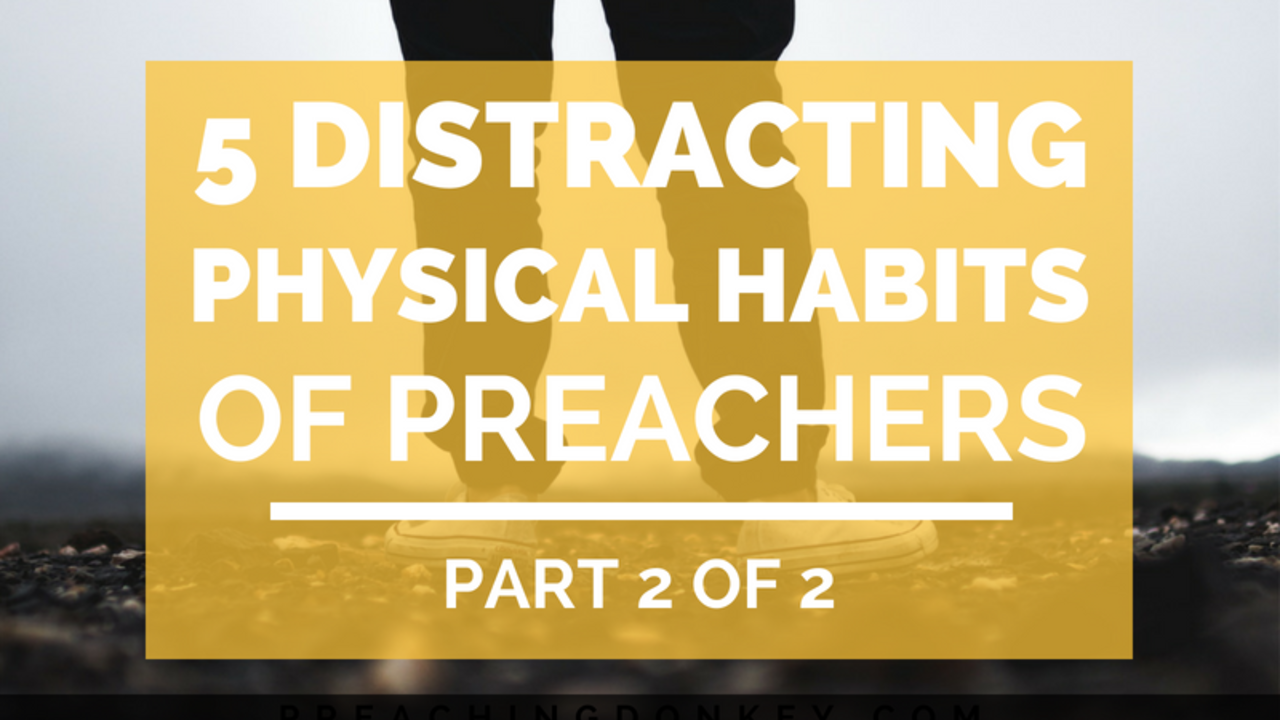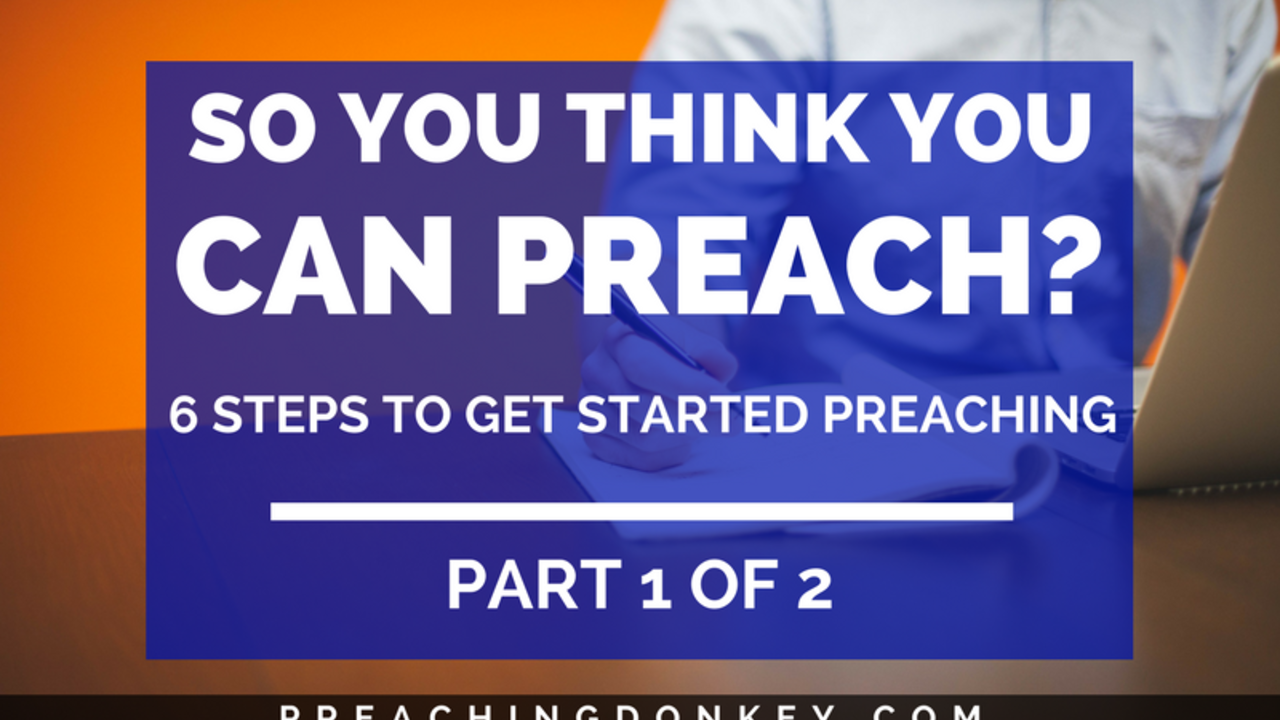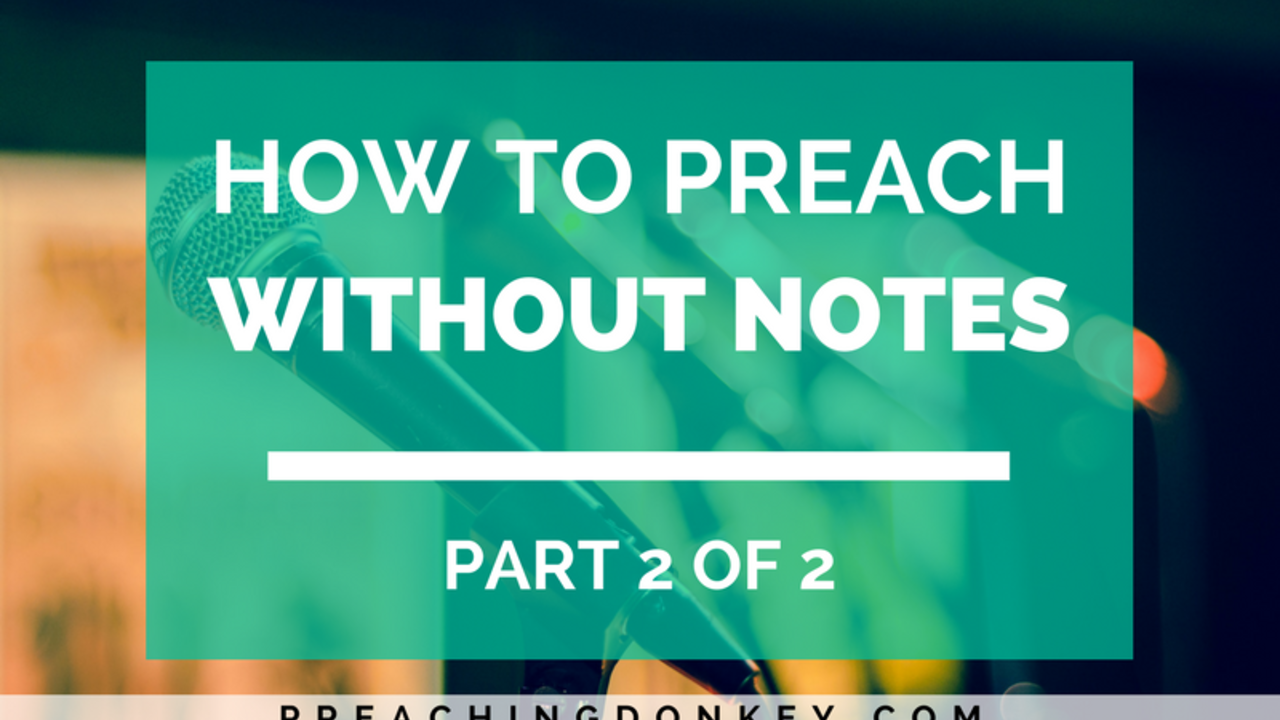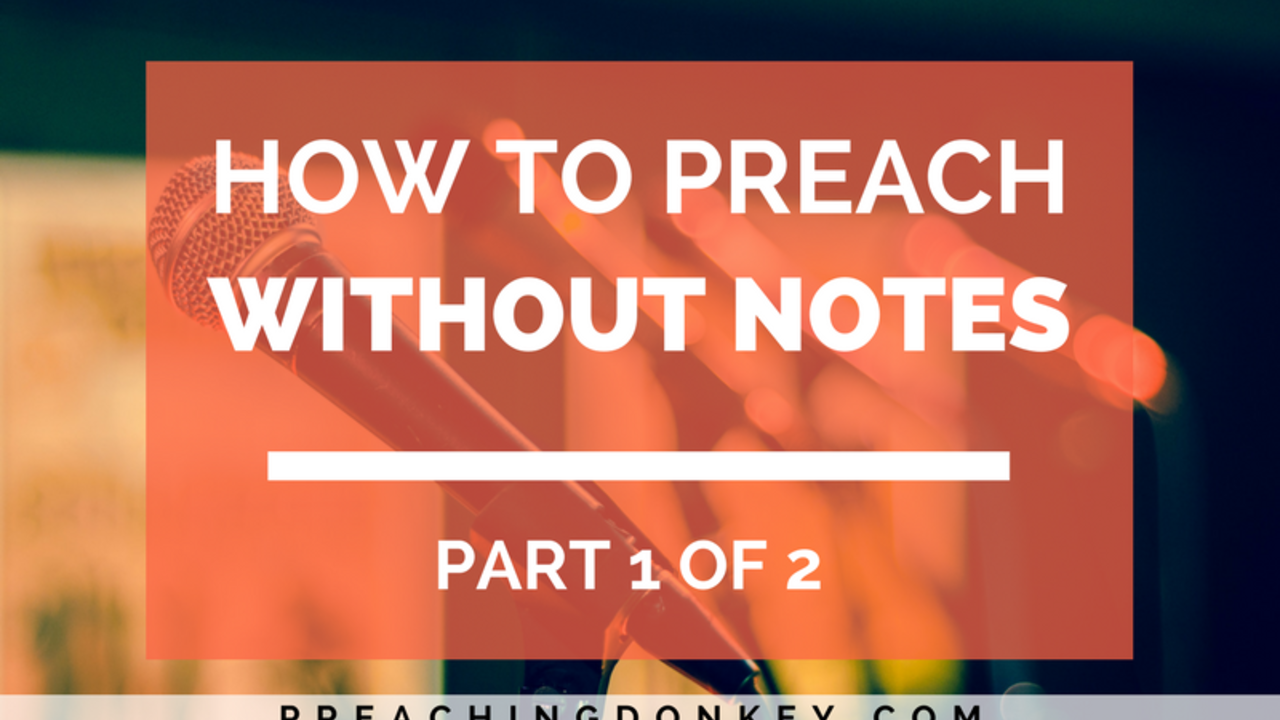The Curse of Knowledge: A Preaching Death Trap – Part 1 of 3

I moved from Oklahoma City, OK to the Washington, DC area straight out of college at 22 years old. It was an adventure to say the least. DC is a fast pace, high capacity, leader-saturated, type-a-personality, beautifully diverse, traffic-jammed, long-commute, action-packed, never-a-dull-moment place to live. I loved it. The people there blew my mind. I met people from all over the globe who were intrinsically driven to succeed in changing the world. It was exhilarating, but at the same time, intimidating. I was a kid from the mid-west who had not seen much of the world (or even the US at that point). I quickly discovered there was a lot I didn’t know. It wasn’t my fault I didn’t know these things, I just didn’t know what I didn’t know.
So I found myself constantly in situations where I would meet someone and we would do the usual, “What do you do?” exchange of pleasantries. I would tell them I was a youth pastor which was my job at the time. They would then tell me what they did for a...
Five Distracting Physical Habits of Preachers – Part 2 of 2

Every preacher needs to be aware of a potentially hazardous problem that can show up in their sermon delivery: distracting physical habits. In Part 1 of this series, we looked at the first two distracting physical habits of preachers:
1. Turning your back to the audience to read from the screen
2. Using filler words and vocal pauses
If you missed that post, check it out here. Today we are going to look at three more distracting physical habits of preachers:
3. Aimlessly pacing back and forth on the stage
In college I majored in Communications. In my program, we studied presentation techniques extensively. We examined what works and what doesn’t when it comes to public speaking. And we practiced presenting in front of each other routinely. In the first speech I gave as a freshman, I paced a lot. Back and forth across the room. I was mimicking what I had seen some of my favorite speakers do. Only, their pacing was purposeful and intentional. Mine was aimless. My professor called me o...
Five Distracting Physical Habits of Preachers – Part 1 of 2

Every preacher has physical tendencies that unintentionally distract the audience. Sometimes these are known by the preacher and other times they are ticks and habits that must be pointed out to be changed. Public speaking in any context, and especially in a church setting, engages your whole mind and body. This means speakers can easily find themselves neglecting to pay attention to their body language and physical habits because they have to remember what to say … and everyone is watching.
All of us could use some coaching in this area. When I look back through videos of my sermons I notice more distracting physical tendencies than I care to admit! But there is hope and we can all overcome these by knowing what they are and working to eliminate them.
I want to offer five common physical distractions I’ve observed in preachers over the years. I’ve also seen a good amount of these in my own preaching over the years and have sought to correct and eliminate them. This is why watching ...
So You Think You Can Preach? 6 Steps to Get Started Preaching – Part 2 of 2

In Part 1 of this series we looked at the first two steps to get started preaching. Today we will dive into four more steps to kick start your preaching ministry. If you haven’t read that post, check it out here. Step one is to start where you are and step two is to look for opportunities. Here are the next steps:
3. Seek meaningful feedback. Every time you present content to people you should seek meaningful feedback. People will be tempted to tell you that you did amazingly because they won’t want to crush your spirits as a new preacher. That type of encouragement is fine and you’ll get a good amount of that. But you need to seek out honest feedback from people who will give you specific things to work on for your next time. No one is a pro at something right out of the gate. The best athletes in the world spend countless hours conditioning and practicing. Preaching is much the same. Be willing to receive feedback from trusted people and make adjustments accordingly. This post on Ho...
So You Think You Can Preach? 6 Steps to Get Started Preaching – Part 1 of 2

Have you ever wondered how to get started preaching? Maybe you sit in church and look up at your pastor giving the message and think, I could do that!
You get cut off in traffic, lose it for a second and start pounding your horn. When you calm down it hits you, This would make a great self-deprecating sermon illustration in which I demonstrate that, while I’m still human, God uses imperfect people!
When someone asks you a question about the Bible, God, theology, a doctrinal dispute or social issue, you relish in the opportunity to help them make sense of their question, but what you really want is for them to do something with their newly discovered truth.
If any of these resonate with you it may mean you have an itch, a desire, perhaps even a calling to preach. I want to share with you some things to consider and possible next steps you could take. So you think you can preach? Let me share with you how to get started preaching in six steps. But first, let’s answer an important ques...
How to Preach Without Notes – Part 2 of 2

In Part 1 of this series we dove into the first two steps of training ourselves how to preach without notes.
My desire to preach without notes started with this question: What if I could train myself to not need notes at all? What if I could prepare in such a way that I could deliver a message and never look down, but maintain eye contact and physical engagement with my listeners from start to finish? What if you could, too?
So I began training myself not to use notes, and I am sharing what I’ve discovered with you. The first two steps are to reduce the amount of notes you allow yourself and build a flow of triggers and touch points. You can read more in Part 1 of this series. For today, let’s look at the next two steps to preaching without notes:
3. Rehearse and internalize your message
The next step is to take that one page with your touch points and triggers and rehearse. In my post, Preach what You Practice: Why Rehearsing Is Essential To Great Sermon Delivery I make the argum...
The Best 5 Books on Church Growth

Living things grow. If something isn’t growing, it’s dying. This is why a church that is not growing is a cause for concern. A church should be alive and one way to know if a church is alive is to look at the numbers.
Numbers aren’t everything, but numbers represent people and each person has a story and every story matters to God (I didn’t come up with that, but I love it).
Every church leader should be intentional about positioning their church for growth. I’ve pulled together my list of the best five books on church growth. Each one of these books will give you strategies and actionable best-practices to help grow your church. Here’s my list of the best 5 books on church growth:
5. Breakout Churches by Thom Rainer
Thom Rainer writes about the common factors that result in forward momentum for churches. What makes a church move from mediocrity to exponential growth? What are the best practices that churches can discover to break out of their plateaus and see movement in all a...
How to Preach Without Notes – Part 1 of 2

We’ve all seen this happen. The preacher walks up to the stage with a Bible, some pieces of paper, and a binder. He spends the first few seconds placing everything on the podium. While he’s doing this the audience is mostly looking at the top of his head as he looks down. As he begins speaking he reads from one piece of paper, looks up, finds another one in his binder, reads it, looks up again, and then looks down for his next idea. Aside from the sloppiness and the seemingly un-prepared vibe this gives off – it also risks not engaging the audience.
Let’s contrast that scenario with the preacher who gets up on stage and speaks with clarity and command of the room, engages everyone with eye contact and energy, and you never see him look down, fumble through pages, or read from anything but the Bible.
From a communications perspective, the preacher in our first scenario is far less likely to connect with his listeners. He is missing a vital aspect of capturing people’s attention immedi...
The Best 5 Books on Leading Change

Change is inevitable. Everything changes … constantly. And the rate of change is not going to slow down. This is why every church leader needs to know how to lead their staff and congregation through change. I’ve pulled together my list of the best five books on leading change. Each one of these books will help you navigate leading change in unique ways. Here’s my list of the best 5 books on leading change:
5. Who Stole My Church? by Gordon MacDonald
Let me first say I wish this book didn’t have to be written. I wish churches young and old were so mission-central and focused on the task Jesus has given to us of making disciples that they willingly embrace the changes necessary to reach the next generation for Christ. But, unfortunately we know that is not always the case. This book gives a glimpse of what it’s like for some who do not readily accept that the church must constantly change its methods without compromising its message. It shows that they are not “bad” people, but tha...
3 Things You Must Do With Every Point You Make In Your Sermons

You make points in every sermon you preach. You try to communicate at least one point. One idea. One bottom line. You may have one major point but a number of supporting points. The point is, you make points. Get the point? So, what do you do with every point you make? Is it enough just to say the words. “My main point is _________. Okay, let’s close in prayer.” Well, we both know that would be insufficient.
We have to do more than just say a point for it to stick. But how do we do this? How do we develop sticky points that land on people in powerful ways? I suggest doing at least three things with every point you make in your sermons. Using these as a base line allows you to do more if you’d like, but make sure you’re at least doing these three things:
1. Teach the point. When you teach the point you are explaining the concept and providing the biblical backing. In other words, you are showing how you derived the principle from the Scripture as you connect it back to the text. This ...




